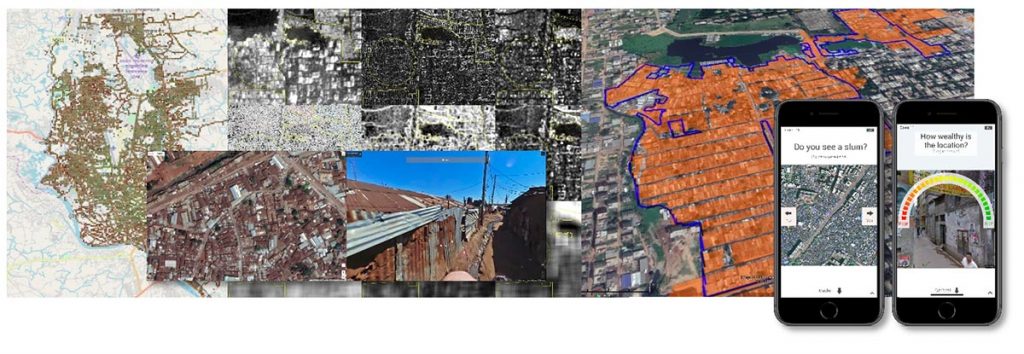Gaming Approaches for Crowdsourcing Urban Information
There have been remarkable advancements in EO state-of-the-art information extraction techniques using ML/DL approaches recently, including urban domain. Still, local in-situ information for training of machine-learning algorithms, Quality Assurance/Quality Control and validation are often limiting factors, due to their sub-optimal availability and coverage. In general, there is a lack of appropriate in-situ data collections for most of urban monitoring themes since this is demanding both organisationally and financially. This is true particularly for remote or unsafe regions around the world and/or for complex thematic features. Therefore, there is still considerable room for improvement in organisation of such collections and thus a huge potential to further operationalise many urban mapping and monitoring services.
In this situation, a novel scalable framework for EO based information extraction, supported by crowdsourcing and gaming approaches has been developed within the framework of the ESA supported GAME.EO project.

The approach is demonstrated using selected service cases for EObased monitoring of slum areas (Sustainable Development Goal 11) in development support context. The tool aims for actionable use of crowdsourcing and gaming tools to enhance current machine-learning algorithms for the identification, delineation and further characterisation of slum areas. Developed framework and tools are tested in cooperation with World Bank Group users and stakeholders from the Water and Urban Global Practices.
Tools supporting crowdsourcing campaigns via gaming engagements can be used to mobilise and train volunteers to provide training data and to help extracting required information in a more timely and accurate manner and with lower operational costs than would be incurred using standard data collection services. It demonstrates a real potential and an added value of the synergies of crowdsourcing and EO-based information to support the development actors and cities research and operational activities globally.
 Linkedin
Linkedin